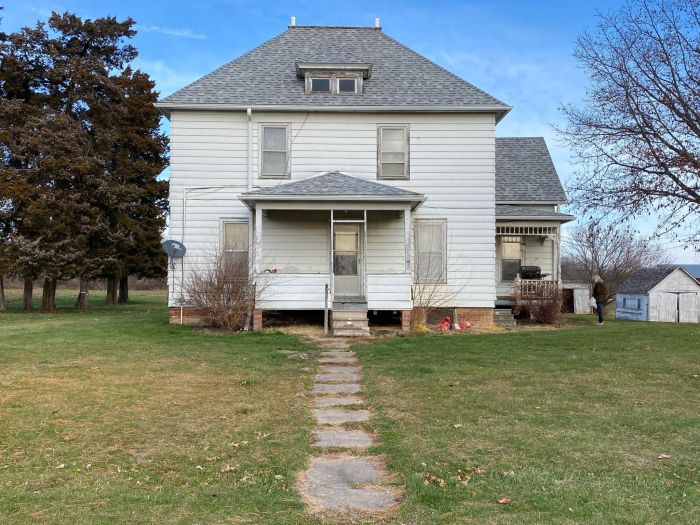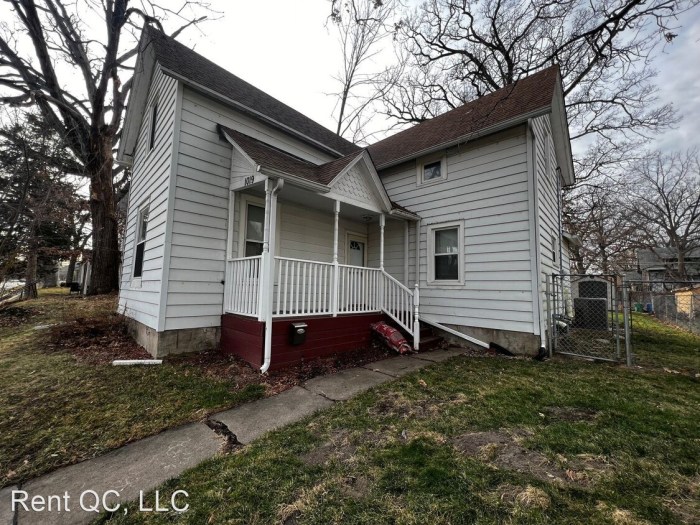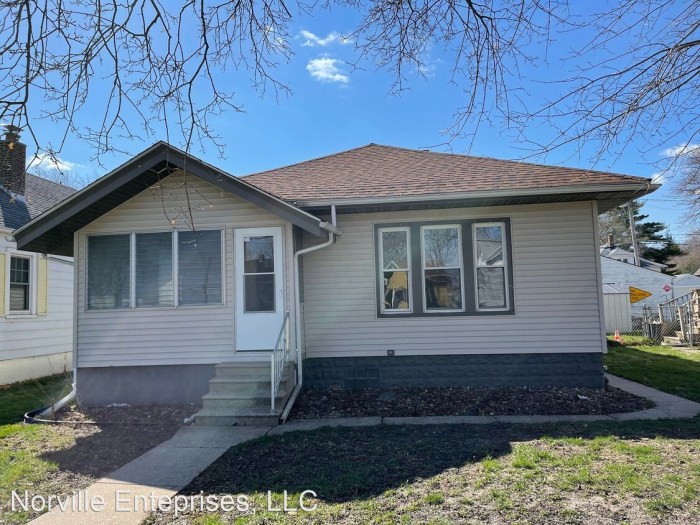Houses for Rent in Moline IL Your Guide
Moline, IL Rental Market Overview
Houses for rent in moline il – The rental market in Moline, Illinois, presents a diverse range of options for prospective tenants. Understanding the current market conditions, popular neighborhoods, and average rental costs is crucial for a successful rental search. This overview provides insights into the key aspects of renting in Moline.
Popular Rental Neighborhoods and Average Rental Prices, Houses for rent in moline il

Source: trulia.com
Several neighborhoods in Moline are particularly popular among renters, each offering a unique blend of amenities, proximity to services, and overall atmosphere. Rental prices vary significantly based on property type and location.
| Neighborhood | Property Type | Average Rent | Number of Listings (Example) |
|---|---|---|---|
| Downtown Moline | Apartment | $1200 – $1800 | 50 |
| South Moline | Single-Family Home | $1500 – $2500 | 30 |
| East Moline | Townhouse | $1300 – $2000 | 20 |
| Quad Cities Area (near Moline) | Apartment | $1000 – $1500 | 75 |
Property Features and Amenities in Moline Rentals
Rental properties in Moline offer a variety of features and amenities to suit diverse preferences and needs. Understanding the common features and available amenities can help renters make informed decisions.
- Common Features: Most rental properties include a range of bedrooms and bathrooms, with single-family homes often featuring yards and garages. Apartment complexes frequently offer in-unit laundry facilities.
- Pet-Friendly Rentals: The availability of pet-friendly rentals varies across properties. Renters with pets should explicitly inquire about pet policies and associated fees.
- Amenities: Some apartment complexes provide amenities such as swimming pools, fitness centers, and community spaces, enhancing the overall living experience. These amenities are more common in newer, larger complexes.
Rental Process and Requirements in Moline, IL: Houses For Rent In Moline Il

Source: apartments.com
The rental process in Moline generally involves several key steps, including application submission, credit checks, and lease agreement signing. Understanding these steps and the required documents is essential for a smooth rental experience.
- Typical Steps: The process typically begins with viewing properties, submitting an application, undergoing a credit and background check, and finally, signing a lease agreement.
- Required Documents: Landlords usually require documents such as proof of income, identification, rental history, and references.
- Lease Terms: Lease terms in Moline typically range from six months to a year, although longer-term leases are also available. Lease agreements detail the responsibilities of both landlords and tenants.
Moline Neighborhood Characteristics

Source: apartments.com
Moline’s neighborhoods each possess unique characteristics that cater to different lifestyles and preferences. Understanding these differences is crucial for finding a suitable rental property.
| Neighborhood Name | Schools | Shopping | Crime Rate |
|---|---|---|---|
| Downtown Moline | Proximity to various schools | Abundant shopping and dining options | Medium |
| South Moline | Good access to local schools | Local shops and supermarkets | Low |
| East Moline | Several schools within easy reach | Shopping centers and grocery stores nearby | Low to Medium |
Transportation and Commute in Moline
Transportation options and commute times are important factors to consider when choosing a rental property in Moline. The city offers a mix of public transportation and private vehicle options.
Public transportation in Moline includes bus services that connect various neighborhoods and employment centers. Commute times vary significantly depending on the chosen mode of transportation and the distance between the rental property and the workplace. A typical commute from South Moline to the John Deere Harvester Works might involve a 15-20 minute drive, while using the bus system could extend this to 30-45 minutes, depending on the route and traffic.
A textual representation of a commute map would show radial lines extending from various neighborhoods to major employment hubs like John Deere, the Genesis Medical Center, and the numerous businesses in the downtown area. The lines would be color-coded to indicate different transportation methods (car, bus) and would include estimated travel times.
Cost of Living and Utilities in Moline
The cost of living in Moline is relatively affordable compared to some larger metropolitan areas. Understanding the average costs of utilities and other essential expenses is vital for budgeting.
- Cost of Living Comparison: Moline generally offers a lower cost of living than cities like Chicago or Davenport, IA.
- Average Utility Costs: Average monthly utility costs (electricity, water, gas) might range from $150 to $300, depending on consumption and the size of the rental unit.
- Average Monthly Expenses: A typical monthly budget for a renter in Moline could include rent ($1200-$2500), utilities ($150-$300), groceries ($300-$500), transportation ($100-$200), and other expenses ($200-$400).
Quick FAQs
What is the average security deposit in Moline, IL?
Security deposits typically range from one to two months’ rent, but it’s best to confirm with the individual landlord.
How long are typical lease terms in Moline?
Lease terms commonly range from six months to one year, though some landlords may offer shorter or longer terms.
Finding the perfect house for rent in Moline, IL, can be a journey, but exploring options beyond Illinois can broaden your search. If you’re open to other locations, you might consider checking out the available properties listed on this site for houses for rent in Lompoc , which offers a different housing market. Ultimately, the best choice depends on your specific needs and preferences, so thoroughly researching both Moline and other areas like Lompoc is recommended.
Are there any pet restrictions on rentals in Moline?
Pet policies vary widely among landlords. Some may allow pets with additional fees or restrictions, while others have strict “no pets” policies. Always inquire directly with the landlord.
What is the process for reporting maintenance issues?
Most landlords have a designated process, often involving online portals or direct contact, for reporting maintenance needs. Check your lease agreement for specific instructions.




















